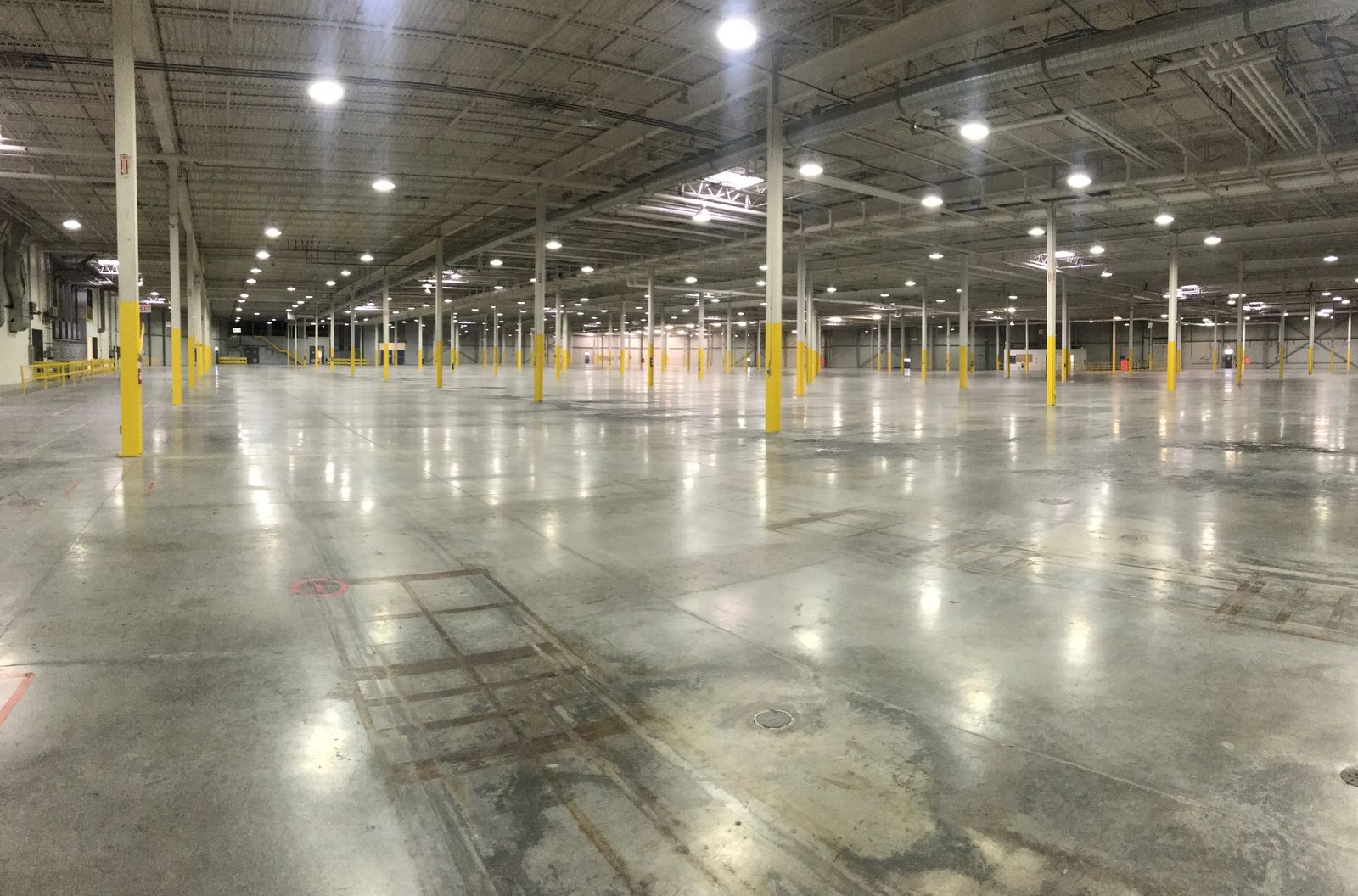5 Strategies for Successful Lease Renewals
Securing Your Occupancy in a Tight (and Uncertain) Market
August 7th, 2020
It has never been more important to reduce as much risk in your business as possible. When it comes to your operational footprint, this means optimizing and securing your real estate. And while many Occupiers of industrial facilities may be looking to rightsize or relocate in the coming months, this simply may not be possible given the GTA’s record-low vacancy rates being anywhere between 0.9% and 1.4% depending on the sub-market. Therefore, renewing your existing lease may be the only option; while still cost-effective.
That being said, executing a renewal is not as simple as it seems and can take much longer than most people would expect. Further, the failure to do so correctly can potentially result in increased rents, forced relocations, and discontinuity of operations; effectively jeopardizing the business.
Let’s say you currently occupy a space that works for you. It perfectly meets your needs.
Your lease is up in 18 to 24 months… maybe even three years from today, and, you heard that rental rates are moving up so you wanted to be proactive… And net rental rates have moved up significantly… and based on what we are seeing at this moment, they will continue to increase.
This is because the GTA Industrial market vacancy rates are still among the lowest levels ever despite the economic shutdowns. And regarding industrial product, in particular, the pressure coming from e-commerce seems to be sustaining demand and outweighing any businesses leaving the region or winding down (for now, at least… we’ll see what happens in the balance of 2020).
So what can you do to ensure you have some options going forward?
Well, there’s one key strategy you must have in order to negotiate successfully (which we’ll reveal later on), however, above all else…
Start the process early!
We typically help our clients prepare for their lease expiries (and renewals) 18 months in advance. As part of strategy development we recently performed for someone, we conducted market research and found very few options for them at this moment.
Does this mean we won’t find them a solution? No, it doesn’t. Yet if they had been looking to renew 6 months out (instead of 18), they would have been forced to pay up or relocate. But even in the worst-case scenarios, options do exist. We have helped a number of our clients optimize their facilities to use their existing space more efficiently (we may dive deeper into this in another issue).

Lease Renewals are potentially the most commonly misunderstood and least utilized tool for:
- improving your bottom line,
- mitigating future risks, and
- increasing flexibility.
Renewal options typically occur every five or ten years, and quite often, Tenants are busy running their business and not paying much attention to notice periods in the Lease as well as current market conditions.
In order to succeed with renewals, you must utilize one crucial strategy; and that is leverage.
Leverage is needed to negotiate from a position of strength. And it comes from knowing what the other side is thinking, feeling, and experiencing; while not being needy yourself.
Without understanding current market conditions and the landlord’s specific circumstances you will always be at a disadvantage. And being short on time, money, or options can make you lose all control. We’ll break this down further below.
Last week, we examined a few points regarding negotiating a successful lease renewal.
In this week’s newsletter, let’s look at how an Occupier may develop a strategy to successfully renew their lease(s)…
So if your lease expires in the next 12 to 24 months, here’s how you can start the process today…
1. Understand your notice periods
It is important to know exactly what your notice periods are. As mentioned earlier, most notice periods are six to twelve months prior to the expiry of the lease.
Who is keeping track of these timelines?
Have you completed a Lease Abstract so that you can see the overview of all of the important lease terms and dates in one place?
Missing these dates could create big problems down the road…
2. Understand your business needs
It is sometimes difficult to predict what might happen two to three years in the future but you should have a clear understanding of your business needs today.
Here are some prompts:
- Knowing what the optimum size for your business is today,
- How many SF of space you occupy at the moment at different locations,
- Is it the right moment for a potential consolidation?,
- Has your business changed?,
- Can you achieve better efficiencies with a higher ceiling height in the warehouse area?,
- Do you require more office space?,
- Is your current parking for vehicles and trucks adequate?, etc….
Or maybe your space already expired prior to the lease expiry date?
Understanding all of the above will impact your decision to renew, when you should renew, how long you should renew for, and how to structure your lease to maintain flexibility.
3. Understand current market conditions
Knowing the current market in your area, the vacancy rates, net rental rates, market trends, absorption, new construction, tenant improvements, concessions, etc. is very important to reach a favourable deal.
4. Create leverage
Creating leverage is everything.
Leverage is the power that one side of a negotiation has to influence the other side to move closer to their negotiating position. A party’s leverage is based on its ability to award benefits or impose costs on the other side.
The party that has the most to lose from a “no-deal” outcome has less leverage than the party that has the least to lose.
Individuals with strong leverage can sometimes overcome weak negotiating skills, whereas those with poor leverage have a reduced likelihood of being successful even if they have strong negotiating skills.
This is important to note because it means the side that is best positioned and prepared will outperform the best negotiators any day of the week.
And you can create leverage by:
- Conducting market research today and knowing your options (hopefully there are few),
- Approaching your Landlord (the earlier the better).
- Developing a Strategy, and
The outcome of this is:
- You will be able to evaluate you current position against the market,
- If your “space expired” and you don’t find any options in the market today, you still have a year or two prior to the expiry of your lease.
- If you find alternative options better than your current location, you can still commit to the new location and sublease your existing space. Chances are, you negotiated your lease terms years ago and rental rates are way below the market today. You will be able to sublease with no issues (or the Landlord may be happy to take over the property earlier and release it at higher rates).
- If your current space still works for you (there is no need to “right size”), you will be negotiating your renewal rates today vs negotiating a year or two down the road, thus, securing net rental rates today will be most likely 20% – 40% less expensive then negotiating the same one to two years from now.
The bottom line is:
- If you communicate to the Landlord that there is a potential for your relocation you will put yourself in a position for a true business negotiation based on concrete facts, and
- In the event your space already expired you are better off relocating early and transacting at today’s rates.
5. Negotiate maximum concessions
Negotiation with leverage is the final piece to a successful renewal process. Once you understand your current business needs, have a handle on the current market, and have created leverage, you are able to negotiate from a position of strength.
The objective of a successful renewal (or relocation if need be) is to come to an agreement that will be based on fair market value today.
CONCLUSION
Hopefully, you enjoyed our two-part discussion on lease renewals. We covered quite a lot of ground regarding the basics and ‘what to expect’ down to strategic and tactical maneuvering.
For many of us, our business means everything, and we are all trying our best to manage current market conditions caused by the pandemic.
That being said, Owners and Occupiers of Commercial Real Estate in the Greater Toronto Area may or may not be well-positioned to push through the pandemic and its resulting shutdowns. Few, if any, of us could have predicted what happened, and it caught many of us by surprise.
The silver lining here is that the GTA is such a robust and in-demand market with a large ecosystem of Buyers and Sellers. And with our vacancy rates, rental rates, and valuations having hit all-time highs right before COVID-19 took place, there may be plenty of opportunities to find creative solutions; whether it be through rightsizing, refinancing, bridge financing, sale-leasebacks, or otherwise.
While there may exist challenges in execution, Buyers are ever more hungry for product. Local, high-net-worth developers and investors are often active in bottom-of-market conditions. And well-capitalized institutional investors and pension funds are still willing to take a look at a deal if the numbers make sense. Partial-leasebacks and right-sizing options also exist for those looking to reduce their footprint while raising some capital at the same time.
Renewing your lease is part leverage, part positioning, part timing, and part luck. Yet all of these risks can be mitigated or removed by starting early.
Just like other areas of life, those who are best prepared will reap the benefits. And when it comes to securing the right space for your needs, a little bit of work early on can pay off for many years to come… so don’t put it off until it’s too late.
If you require guidance regarding your commercial real estate property or portfolio, please contact us.
Until next week…
Goran Brelih and his team have been servicing Investors and Occupiers of Industrial properties in Toronto Central and Toronto North markets for the past 25 years.
Goran Brelih is a Senior Vice President for Cushman & Wakefield ULC in the Greater Toronto Area.
Over the past 27 years, he has been involved in the lease or sale of approximately 25.7 million square feet of industrial space, valued in excess of $1.6 billion dollars while averaging between 40 and 50 transactions per year and achieving the highest level of sales, from the President’s Round Table to Top Ten in GTA and the National Top Ten.
Goran is currently serving as Immediate Past President of the SIOR ‐ Society of Industrial and Office Realtors, Central Canadian Chapter.
Specialties:
Industrial Real Estate Sales and Leasing, Investment Sales, Design-Build and Land Development
About Cushman & Wakefield ULC.
Cushman & Wakefield is a leading global real estate services firm that delivers exceptional value by putting ideas into action for real estate occupiers and owners. Cushman & Wakefield is among the largest real estate services firms with 48,000 employees in approximately 400 offices and 70 countries.
In 2017, the firm had revenue of $6.9 billion across core services of property, facilities and project management, leasing, capital markets, advisory, and other services. To learn more, visit www.cushmanwakefield.com or follow @CushWake on Twitter.
For more information on GTA Industrial Real Estate Market or to discuss how they can assist you with your real estate needs please contact Goran at 416-756-5456, email at goran.brelih@cushwake.com, or visit www.goranbrelih.com.
Connect with Me Here! – Goran Brelih’s Linkedin Profile: https://ca.linkedin.com/in/goranbrelih
Goran Brelih, SIOR
Senior Vice President, Broker
Cushman & Wakefield ULC, Brokerage.
www.cushmanwakefield.com
Immediate Past President, SIOR – Central Canada Chapter
www.siorccc.org
Office: 416-756-5456
Mobile: 416-458-4264
Mail: goran.brelih@cushwake.com
Website: www.goranbrelih.com


